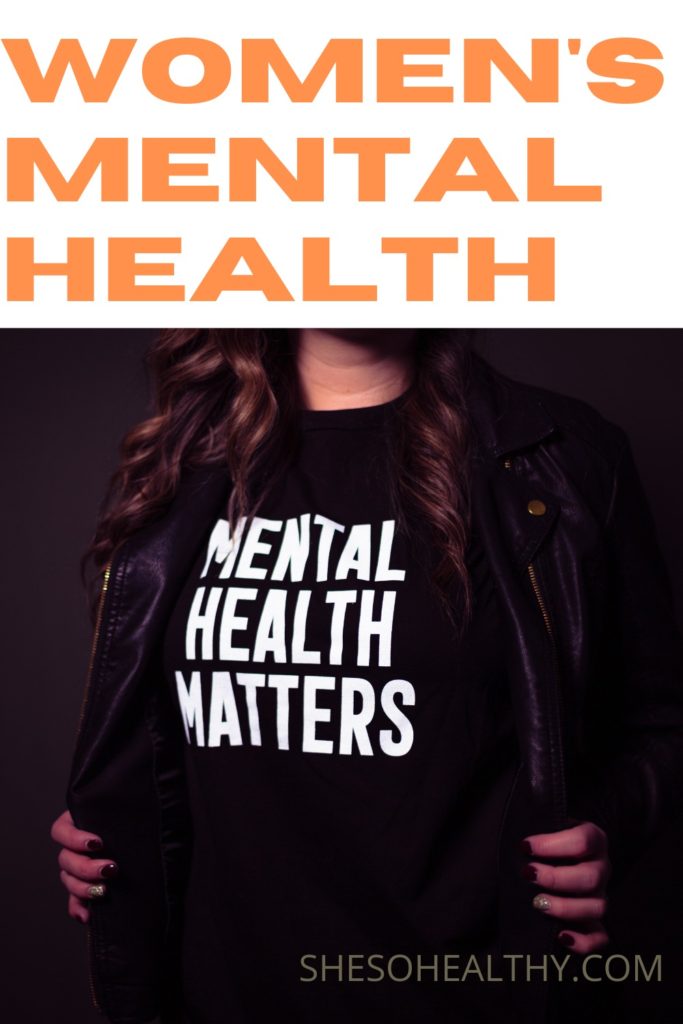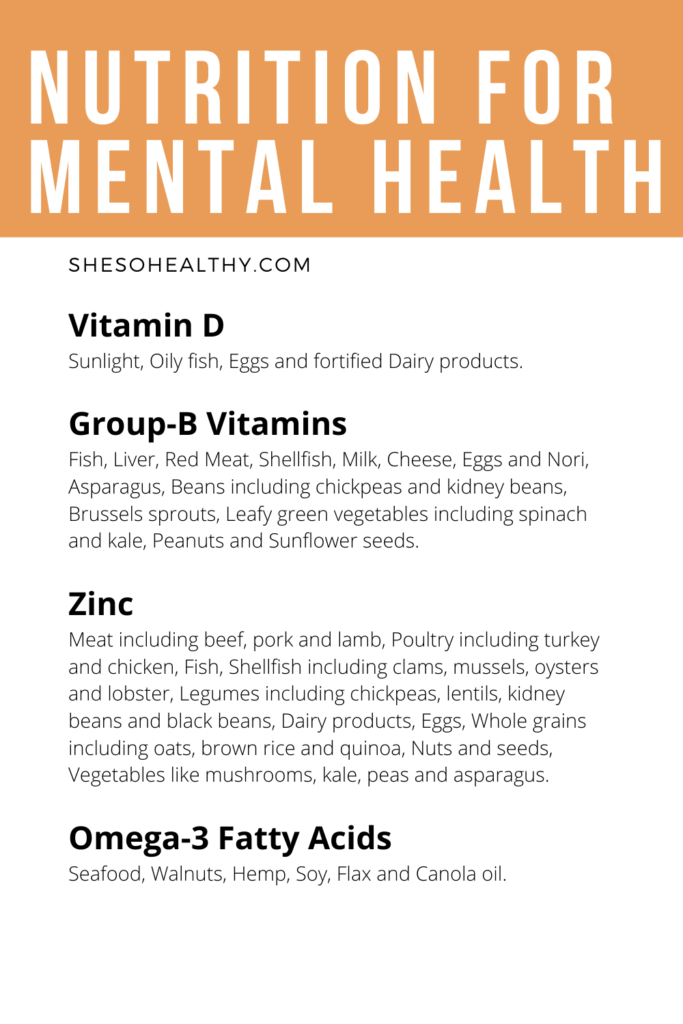If you’re struggling with a mental health battle, you’re not alone girl. In fact, about 1 in 5 women in the US have suffered from a mental health condition in the past year.
There are a number of mental health conditions including anxiety, depression, bipolar disorder, obsessive-compulsive disorder, schizophrenia, personality disorders, eating disorders, and more. The most common are anxiety and depressive disorders.
If I take a guess, I bet you’re carrying the world on your shoulders. Caring for those around you, making sure they’re fed, clothed, happy, all while feeling exhausted in the process. There is a difference between being tired and suffering from a mental health condition, but when you’re suffering mentally, having a lot of pressure on you is likely to make your condition even more challenging.
The juggle/struggle is real, lady. Research shows that mothers in dual-income households are spending twice as much time parenting than fathers.
A study conducted in 2009 showed a strong correlation between ‘role overload’ and mental health. Role overload relates to the extent to which you feel overwhelmed by your responsibilities. This study showed that role overload is more closely related to mental health than other variables including income.
Add to this the fact that anxiety disorders can be brought on by pregnancy. According to the MGH Center for Women’s Mental Health, “up to 20% of women suffer from mood or anxiety disorders during pregnancy.”
Then there’s perinatal depression and this occurs either during pregnancy or after childbirth. Perinatal depression is a term that covers depression during pregnancy (prenatal depression) as well as depression after childbirth (postpartum depression). If you are going through this, you may be feeling extreme sadness, anxiety, and an inability to perform basic tasks and care for yourself and those around you.
The World Health Organisation states that women in developing and developed countries are twice as likely as men to develop depression.
These statistics are sobering. There are millions of women who are not coping on a daily basis. Many are silent about their condition and even though the stigma around mental health is slowly dissipating, some cultural groups and pockets of society are not as accepting of these types of ‘unseen’ conditions, and many women are suffering in silence.
“The strongest people are those who fight unseen battles”
Unknown

What should you do as a woman with a mental health condition?
- Firstly, don’t be silent about it. Reach out, firstly to your doctor. Your doctor can help treat the condition, or if not, refer you to a mental health practitioner who can. It’s important to address it because if depression and anxiety are left untreated, they can go on for months or even years. Talking about your thoughts and fears with someone you trust may also help you. If the people who care about you know you’re struggling, you are more likely to receive the support you need.
- Know that you’re not alone. You are one of the 20% of women who are going through a mental health struggle. That’s a lot of sisters you have who understand what you’re going through. There are support groups out there and you may benefit from searching for one in your area.
- Know that it’s not your fault. Mental health conditions are thought to be caused by genetics, the environment, or a combination of both.
- Just because it’s in your head, it doesn’t mean it doesn’t exist. You need to remember that what you’re feeling is real, and just like having a broken arm, your anxiety, depression or other mental illness needs to be treated and taken seriously.
- Try to improve your diet and consume a variety of nutrients including the ones below which may help to improve your mental health.
The connection between diet and mental health
You may have heard it before but food can have an impact on your mental health. Eating well ensures that you consume a wide variety of nutrients and avoiding simple sugars may have a positive impact on your health altogether. A study published in 2019 revealed that consumption of higher sugar-sweetened beverages was significantly associated with a higher risk of depression. So this demonstrated that processed foods with a high sugar content should be avoided for general health but also because they may increase the risk of depression.
Nutrients that may have a positive impact on your health include B-vitamins, Zinc, Omega-3 fatty acids and Vitamin D.
Vitamin D
In a 2019 meta-analysis (to be considered tenatative), researchers found that Vitamin D favorably impacted depression ratings in major depression with a moderate effect size.
The best source of Vitamin D is sunlight but you can also consume it by eating oily fish, eggs and fortified dairy products.
Omega-3 Fatty Acids
There are a number of studies to suggest that Omega-3 may be important to mental health.
Omega-3 is a polyunsaturated fatty acid, just like Omega-6. Our modern diets contain far too much Omega-6 compared to Omega-3. The main forms of Omega-3 are the parent molecules ALA, DHA and EPA. ALA can be found in a variety of plant based sources such as walnut, hemp, soy, flax and canola oil. DHA and EPA are ‘essential fatty acids’ which means they are not made by our bodies, so they must be consumed. A small percentage of ALA can be converted into EPA and DHA, however the richest source of essential acids is seafood.
Zinc
Zinc is a mineral of great importance in the body. Your body can’t produce it, so it is an essential mineral. Zinc is important for DNA synthesis, protein production, skin health, immune function, and growth and development. Zinc is also important for your sense of taste and smell. Did you know that if your sense of smell or taste has reduced, you may be deficient in zinc?
There are studies indicating that zinc may be very important for your mental health. It’s important to ensure your intake of zinc is sufficient. Remember, your body can’t make it. You need to consume it.
Where is zinc found? The best sources of zinc include:
- Meat including beef, pork and lamb
- Poultry including turkey and chicken
- Fish
- Shellfish including clams, mussels, oysters and lobster
- Legumes including chickpeas, lentils, kidney beans and black beans
- Dairy products
- Eggs
- Whole grains including oats, brown rice and quinoa
- Nuts and seeds
- Vegetables like mushrooms, kale, peas and asparagus
B-group Vitamins with a focus on B12 and B9
B-group vitamins are another important groups of nutrients which are important for mental health and there are studies that support this. Here we will focus on vitamins B12 and B9.
Vitamin B12 (cobalamin)
Now if you are vegan, you should pay attention here because Vitamin B12 is one of the vitamins in the B group of vitamins that is said to play an important role in mental health. I say vegan because as a vegan, you need supplementation of B12. Vitamin B12 is the only vitamin you cannot consume through a vegan diet alone.
So where can B12 be found?
- Fish
- Liver
- Red Meat
- Shellfish
- Milk
- Cheese
- Eggs
- Nori
B9 (Folate)
B9 or Folate is another vitamin that is key for mental health. Folate is particularly important for fetus brain and spinal cord health. So what can you eat to ensure a good intake of Folate?
- Asparagus
- Beans including chickpeas and kidney beans
- Brussels sprouts
- Leafy green vegetables including spinach and kale
- Peanuts
- Sunflower seeds
In conclusion
These nutrients have been studied and results show that they may have a positive effect on your mental health, however it’s important that you see your doctor and ensure that you receive the right treatment for your health needs. You have nothing to lose by eating healthily and it may just help improve your overall health.
You are important and the fact that we women are central to our families’ lives is all the more reason to ensure you put on your oxygen mask and look after your health.


